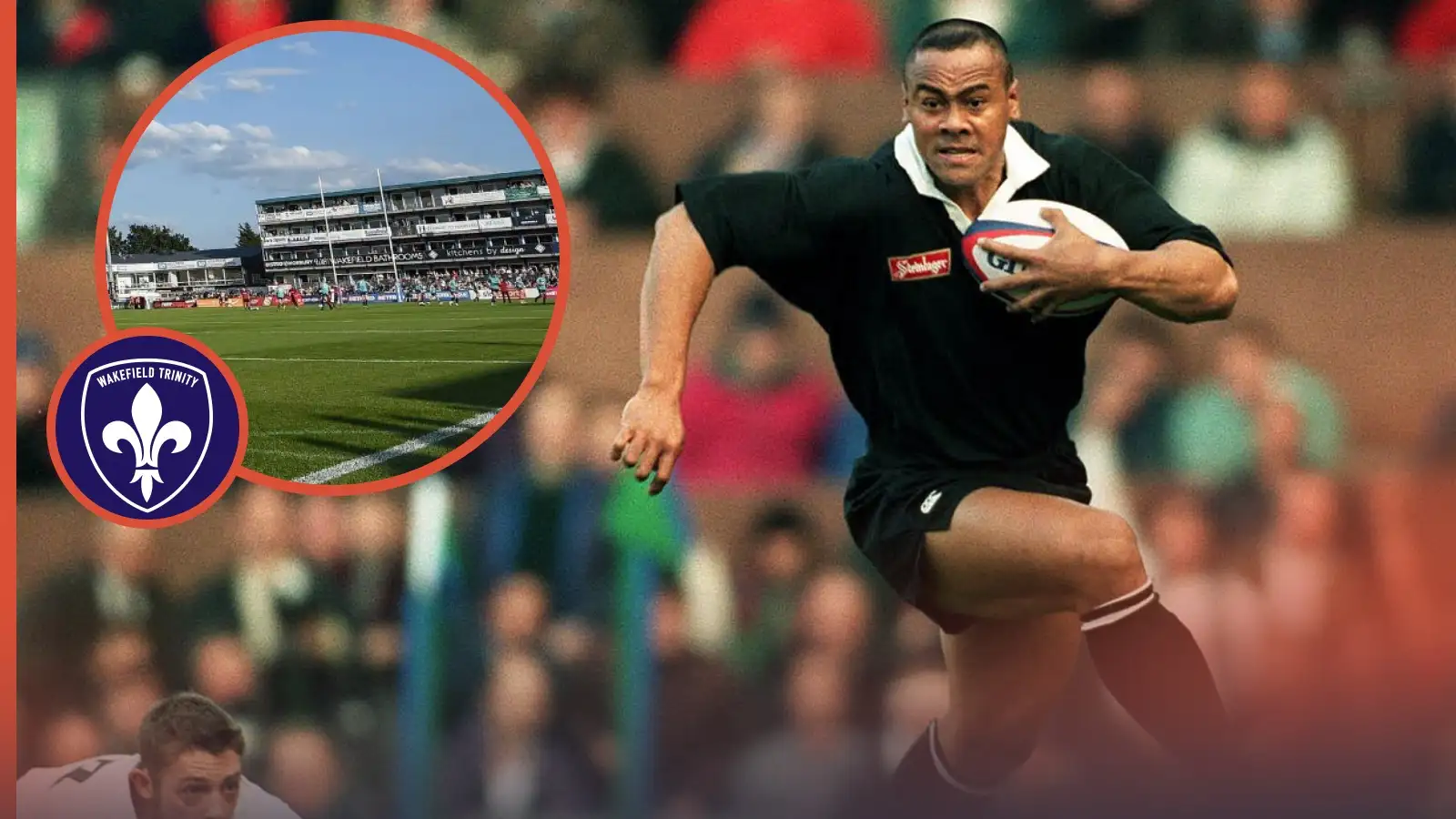Remembering when Wakefield Trinity almost signed rugby superstar Jonah Lomu

It’s safe to say that the financial prowess of Wakefield Trinity has taken a significant thrust forward in recent months, thanks in no small part to the wealth of new owner Matt Ellis.
If rumours are to be believed, the likes of Tom Johnstone and Mike McMeeken have already verbally agreed to sign on the dotted line to play for Trinity in 2025 when many expect they will once again be a Super League club. It is an exciting time to be a Wakefield fan – and those of a certain age will remember when they allegedly almost signed one of rugby’s biggest names.
Of course, it all felt like it had to be taken with a pinch of salt at the time, but it didn’t stop people getting excited when Wakefield Trinity were reported to be frontrunners to land the signature of the great New Zealand rugby union winger, Jonah Lomu.
It sounds like a simulated chain of events from a game, someone of Lomu’s stature arriving in West Yorkshire to play for Wakefield. But dependent on who you believe – including for Trinity chairman Ted Richardson – it came desperately close to happening.
Having just returned to Super League months earlier following victory in the Championship Grand Final against Featherstone Rovers, Wakefield were intent on making a splash upon their return to the big time. And that promotion in late-1998 coincided with a major bidding war from clubs in both codes for the services of Lomu.
READ NEXT: The Super League players already rumoured to have all-but agreed deals elsewhere in 2025
Only in his early-20s at that point, Lomu had already featured in the Rugby World Cups of 1995 and 1999. But with his contract with the New Zealand Rugby Union expiring after that 1999 tournament, his services were very much on the market.
The NZRU had a strict policy of not picking players that played outside New Zealand, meaning that if Lomu accepted any offer from the union clubs such as London Irish and Worcester, who were reportedly interested at the time, his international career would be over.
But it wasn’t just union sides trying to sign him. Auckland Warriors wanted him to play in the NRL – while Wakefield made no secret of their desire to get him to sign: and they set about doing so with an enormous offer.
They offered Lomu £1million over just two seasons – a £500,000-per-season deal that, even in today’s Super League in 2024, would have made him the highest-paid player in the competition. But this was 25 years ago, underlining just how stratospheric the contract size was.
In order to comply with salary cap regulations, Wakefield argued they had secured outside sponsorship to effectively pay Lomu’s salary: as this was before a time when the marquee player ruling existed. It was set to be one of the biggest moments in league history; the biggest rugby superstar on the planet landing in West Yorkshire to play for Trinity.
The only problem? It didn’t happen.
MORE TRINITY: Former Wakefield coach reveals social media abuse and impact on family
Lomu, determined to play in another Rugby World Cup for the All Blacks, shunned the seven-figure offer from Wakefield to take less money and remain in rugby union in New Zealand. He essentially confirmed as much too, admitting at the time: “If it was for money I wouldn’t be in New Zealand. I still believe the All Blacks are the best side in the world.”
Wakefield chairman Richardson said: “Ours was the only serious offer from rugby league and, although we are keeping in touch, we think he is going to remain in rugby union. It is disappointing because his signing would have been a tremendous boost to our game. But the search goes on.”
Of course, Wakefield didn’t make a major marquee signing and the following year, they were making any player over the age of 24 redundant following a well-documented financial crisis.
As for Lomu? He never got to play in that third Rugby World Cup, with his rugby career going on hiatus after he required a kidney transplant. And of course, he sadly passed away in 2015 at the age of just 40.
It’s incredible to think, though, just how close Super League – and Wakefield Trinity – came to having a player of his ability turn out on the field every week.
READ NEXT: The shocking statistics behind Hull FC’s dismal Super League start in 2024